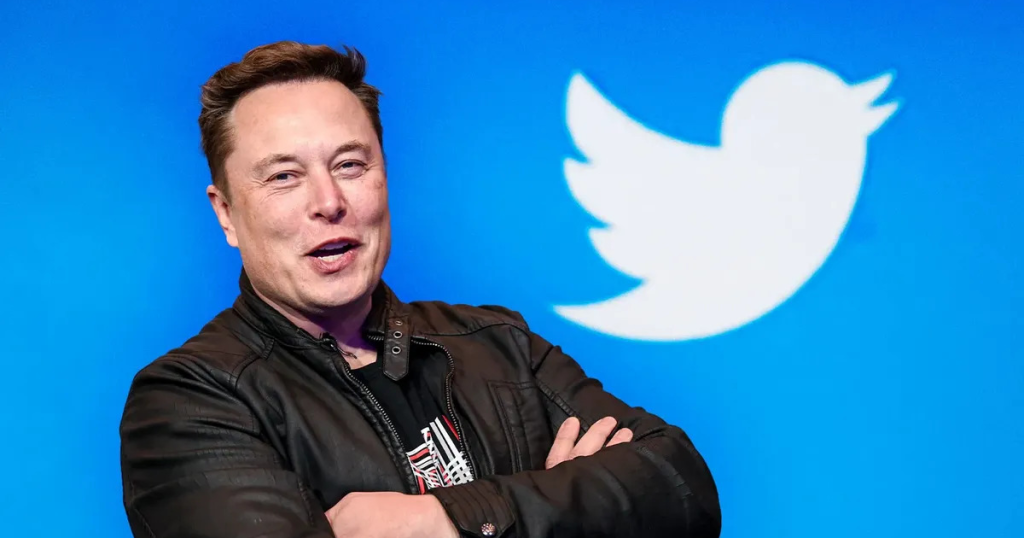Disclaimer: Opinions expressed below belong solely to the author.
Twitter is in turmoil. Following Elon Musk’s ascension to the throne as King of Twitter, the social media network has become a hotbed of unadulterated chaos and disarray.
In a little over a month, Musk had laid off half the staff at Twitter, only to realise he needed some of them back to keep operations running.
He had made attempts to engage advertisers, only to spook them even further by virtue of the fact that his over-the-top personality is now indelibly tied to Twitter.
And like a gift that keeps on giving, Musk got into a verbal spat with a member of Congress and fired even more staff who disagreed with him. All done via Twitter, which provides his newly purchased business maximum exposure.
Currently, there are plenty of voices dissecting what Musk is doing on a second-by-second basis. But the question is, can Musk the Maverick rescue Twitter from falling into obscurity like MySpace? Or will he be the one to fulfil Twitter’s destiny to become a global town hall?
Twitter in the era of Musk
Despite its ubiquity, Twitter has been unprofitable for years. Users have stagnated, and ad revenue is declining. In its last quarterly earnings report before the acquisition, Twitter posted a loss of US$344 million.
To put it mildly, Musk is now the owner of an overtly bloated cesspit of news, views, and misinformation past its prime.
In addition, the takeover has added billions in debt to Twitter’s balance sheet, which explains why reducing costs and increasing revenue are high on the agenda.
Besides an apocalyptical layoff, Musk had proposed a smorgasbord of ideas to seek non-advertising revenue. These include a new paid user tier, a proposed paywall feature for videos and enabling the monetisation of content for creators.
In a bold move to rid the lords and peasants’ system of Twitter authentication, Musk introduced Twitter Blue — a service which offers anyone willing to pay US$8 a month the privilege of having a blue checkmark that was once the exclusive domain of celebrities and public figures.
One does not have to be a genius to see how problematic this is. What happens when anyone can get a symbol of verification without actually getting verified?
A wave of accounts pranking and impersonating, with hilarity ensured.
For us on the ringside, there was even a tiny bit of schadenfreude as celebrities, politicians, and big brands battled with trolls to establish their legitimacy.
The blue tick fiasco has perhaps betrayed Musk’s idealism and naivete about human behaviour. As the spate of fake accounts reached epic proportions, Twitter had little choice but to put the launch of their subscription services on hold.
It would seem like for now, Musk is failing at his attempt to tame the beast that is Twitter.
However, he is right about one thing — the need to wean Twitter off advertisers, which account for 90 per cent of its current revenue. For the business to have longevity, it cannot be a mere vessel subject to the whims and fancies of the digital marketing landscape.
A vision beyond our comprehension?
Love him or hate him, Elon Musk is a visionary. After all, here is a man who made his fortune selling electric cars and never wavered from his dreams of colonising Mars.
By acquiring Twitter, one cannot help but wonder if this is part of a grand plan that we mortals could not envision at this stage.
After all, Musk did say in a TED interview back in April that money was not the driving force behind why he wanted to buy Twitter.
This is not a way to make money. Having a platform that is maximally trusted and broadly inclusive is extremely important to the future of civilisation. This is not about economics at all.
– Elon Musk, CEO of Twitter, Inc
Maybe a closer look at Twitter’s finances changed his mind, or perhaps the current slew of cost-cutting and revenue-growing measures are just ways to provide Twitter with a clean slate. A strategic move which could see Musk accelerate his development of X, an “everything app” inspired by China’s WeChat.
According to the Verge, Musk said, “You basically live on WeChat in China. If we can recreate that with Twitter, we’ll be a great success.”
No one would have thought consumers would readily spend tens of thousands of dollars on an electric car riddled with software problems, but they have. In fact, Musk has singlehandedly transformed how we viewed electric cars and kickstarted an entire industry into building them.
From disgruntled employees to fed-up advertisers, there is indeed widespread disappointment and disillusionment with Twitter at the moment. But what is stopping Musk from turning Twitter into a lifestyle product that we, the consumers, are more than happy to splash out on?
It will take years. But there is hope that under Musk’s unique vision, Twitter can defeat the spam bots and rejuvenate itself with new features to become something that is both revolutionary and profitable.
Featured Image Credit: Salon
